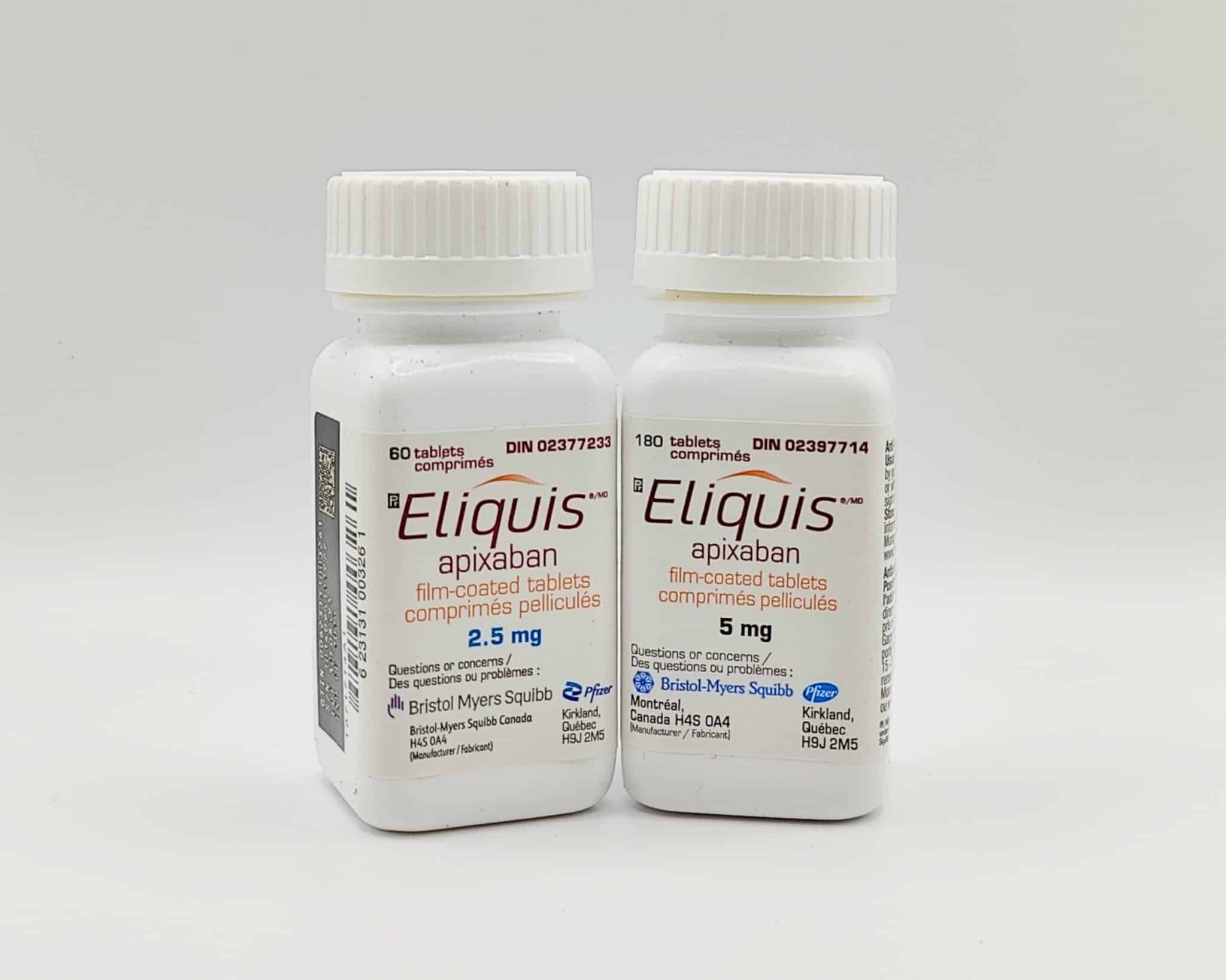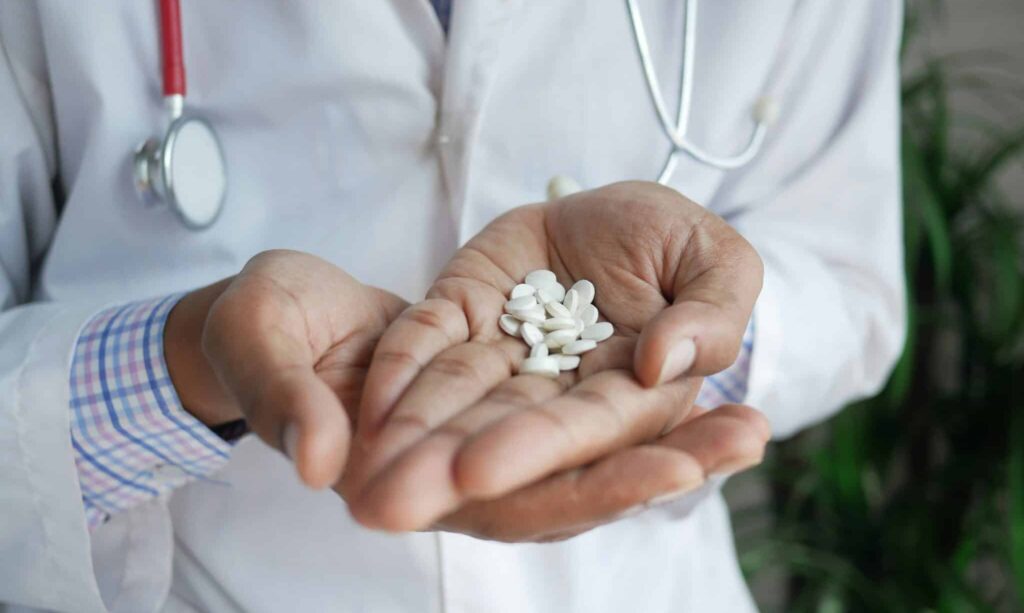Why You Should Avoid Cutting Eliquis Tablets
Why You Should Avoid Cutting Eliquis Tablets
- Todd P
Eliquis (apixaban) is a widely used anticoagulant prescribed to reduce the risk of blood clots and stroke in patients with atrial fibrillation, deep vein thrombosis (DVT), and pulmonary embolism. Patients may wonder if splitting Eliquis tablets is an option to adjust doses or save costs. However, cutting Eliquis tablets is not recommended for several reasons, including uneven dosing, tablet design, and the lack of dosing indications for split tablets. This article explores why cutting Eliquis tablets should be avoided and the risks associated with doing so.
The Importance of Proper Dosing with Eliquis
Eliquis (apixaban) works by inhibiting Factor Xa, an essential component in the blood clotting process. This mechanism prevents clots from forming and reduces the risk of complications such as stroke or pulmonary embolism. Because Eliquis directly impacts blood clotting, maintaining a consistent and accurate dose is critical. Any deviation from the prescribed dose can result in inadequate anticoagulation or an increased risk of bleeding.
Why Cutting Eliquis Tablets Is Not Recommended
1. Tablets Are Not Scored
Unlike some medications, Eliquis tablets are not scored, meaning they do not have a line indicating where they can be safely split. Scored tablets are designed to ensure even splitting, but Eliquis tablets lack this feature. Without scoring, it is nearly impossible to split the tablet evenly, which can lead to unequal doses. An uneven dose could mean receiving too much or too little apixaban, both of which carry significant risks.
2. Coating Plays a Crucial Role
Eliquis tablets are coated to protect the active ingredient, apixaban, ensure proper absorption, and make swallowing easier. Cutting the tablet compromises this coating, potentially leading to:
- Degradation of Apixaban: Exposure to moisture, air, or stomach acid may reduce the medication’s effectiveness.
- Altered Absorption: The coating ensures the medication dissolves at the correct rate. Cutting the tablet could result in faster or uneven absorption, impacting how apixaban works.
3. Uneven Dosing Risks
Splitting a 5 mg Eliquis tablet to achieve a 2.5 mg dose or splitting a 2.5 mg tablet in half to achieve a smaller dose is problematic because these doses are not interchangeable. For example:
- The 2.5 mg dose of apixaban is specifically indicated for certain patients with unique needs, such as those with a history of stroke or low body weight.
- Cutting a 2.5 mg tablet in half would result in approximately 1.25 mg, which is not an approved or effective dose for any condition treated by apixaban.
4. Risk of Overdose or Underdose
Inaccurate splitting can lead to:
- Overdose: Too much apixaban increases the risk of serious bleeding, which can be life-threatening.
- Underdose: Too little apixaban may fail to prevent blood clots, increasing the risk of stroke, heart attack, or pulmonary embolism.
Cost Concerns and Alternatives to Eliquis
Some patients consider splitting tablets to save money, especially if they have difficulty affording their medication. While cost-saving is an understandable concern, cutting Eliquis tablets is not a safe solution. Instead, consider these alternatives:
1. Ask Your Doctor About Financial Assistance Programs: The manufacturer of Eliquis offers a savings card and patient assistance programs that can significantly reduce costs.
2. Explore Generic Options in Canada: Although Eliquis is currently under patent protection in the U.S., generic apixaban is available in Canada at a significantly lower cost. U.S. patients with a valid prescription can explore reputable Canadian pharmacies to obtain generic apixaban safely and affordably. This option provides access to the same active ingredient found in Eliquis while saving money.
3. Monitor for Generic Availability in the U.S.: Generic apixaban may become available in the U.S. in the future, providing a more affordable domestic option.
4. Consider International Pharmacies: In addition to Canada, some international pharmacies may legally supply generic apixaban to U.S. patients at reduced prices. Be sure to verify the pharmacy’s credentials and safety standards before ordering.
Potential Health Risks of Cutting Eliquis Tablets
1. Increased Bleeding Risk
Splitting tablets can lead to inconsistent dosing, increasing the likelihood of bleeding complications. Bleeding risks include:
- Easy bruising
- Prolonged bleeding from cuts
- Nosebleeds
- Severe internal bleeding, such as in the stomach or brain, which can be life-threatening
2. Insufficient Anticoagulation
An underdose of apixaban can leave patients unprotected against blood clots, leading to severe outcomes like:
- Stroke
- Pulmonary embolism
- Deep vein thrombosis
3. Reduced Medication Efficacy
Altering the tablet’s structure by cutting it can reduce the stability and absorption of apixaban, rendering the medication less effective.
Expert Recommendations
Healthcare professionals strongly advise against cutting Eliquis tablets. The U.S. Food and Drug Administration (FDA) has approved Eliquis in specific dosages (2.5 mg and 5 mg) that are based on rigorous clinical studies. Deviating from these prescribed doses by splitting tablets undermines the safety and efficacy established by these studies.
If you have concerns about your medication, always consult your healthcare provider. They can discuss alternative dosing strategies or explore financial assistance programs to help you afford your prescribed treatment without compromising safety.
What to Do If You Accidentally Cut or Take a Split Eliquis Tablet
If you accidentally take a split or uneven dose of apixaban:
1. Monitor for Symptoms: Watch for signs of excessive bleeding (e.g., prolonged nosebleeds or unusual bruising) or signs of clotting (e.g., chest pain, leg swelling, or sudden shortness of breath).
2. Contact Your Doctor Immediately: Let your healthcare provider know what happened so they can guide you on what to do next.
3. Do Not Attempt to Adjust the Dose Yourself: Never try to make up for a missed or uneven dose without professional advice.
Final Thoughts
Cutting Eliquis tablets is not a safe or effective practice. Uneven splitting, the disruption of the tablet’s protective coating, and the absence of dosing indications for split tablets make this practice risky. Patients taking Eliquis, or generic apixaban, should adhere strictly to their prescribed dose and consult their healthcare provider if they have concerns about cost or dosing. By avoiding improper use and ensuring proper medication adherence, you can maximize the safety and effectiveness of your treatment.
For comprehensive information on the risks associated with splitting Eliquis (apixaban) tablets, refer to the U.S. Food and Drug Administration’s guidance on tablet splitting:


